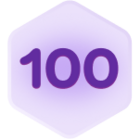I had the opportunity to speak with Kristian Wong and Alex Tellez from Sterling Administration. Sterling is an HSA administrator that partners closely with nursing homes and at home care nurses. Experts in end-of-life care are growing increasingly concerned with what is being referred to as the “silver tsunami.” With the aging population of baby boomers set to exceed the workforce that would support them, Kristian and Alex are looking to innovate at home care for elderly patients and bend the healthcare curve.
Kristian, a solution architect and Alex, a data scientist built a HIPPA compliant app that helps caretakers and family members of elderly patients in nursing homes get up to date information and get ahead of serious health complications before things escalate. The whole backend of the app is managed in Airtable. Kristian Wong says, “Airtable is the front door that opens a whole world of possibilities to change the future of healthcare.”
LM: The two of you created an app that provides transparency between doctors, caregivers and patients. Can you dive deeper into what this app means for healthcare?
AT: In America, we are seeing two prevalent trends. The first one being an aging population. In 2030 there will be more 65 year olds than 21 year olds referred to as the “silver tsunami.” The second being as the boomer population grows so will the cost of healthcare. Through research with clinicians and case managers we realized the best way to bend the curve is to be proactive versus reactive. Kristian and I looked at this challenge from a risk management point of view and questioned how we can minimize hospitalizations for elderly Americans?
We figured if we can minimize hospitalizations for enough people at scale then you can lower the total cost of an aging demographic which leads to bending the curve. This is not only good for elderly Americans, but for everybody. We want to avoid making your bill an eyesore should you or a loved one ever have to go to the hospital. It's a very big mission statement but clinicians, caregivers and loved ones have been very receptive.
Lastly caregivers are put through a lot of stress and each day there could be a new person caring for your loved one. By using Airtable we built a solution that not only provides transparency but also support for caregivers.
LM: Your solution provides an understanding of specific patterns and trends of each patient, families to be informed, doctors to be proactive and the handoff between caregivers to be efficient. This bridges the gap for all three parties in a very meaningful way. I am curious to understand how the two of you joined forces to tackle ambitious goals to innovate healthcare?
AT: My mother and I were caregiving for my father who passed away from cancer. What’s interesting about this scenario is that I have an older brother who lives out of state. Despite not being there physically, he cared for Dad just as much as we did. We were in constant communication about Dad’s food intake, medications and everything in between. During this caregiving mission, we thought about the millions of Americans facing similar situations. Individuals with 9-5 jobs who are also caregivers or caregiving from afar. Living out of state doesn’t make you any less of a daughter or a son. You still worry about mom and dad and seek clarity to ensure their quality of life. This realization is the genesis of why I wanted to tackle this challenge. It's since morphed into something much bigger than I originally thought which is a beautiful thing.
KW: I've been with Sterling Administration since 2016. I was responsible for IT infrastructure and operations. As I learned more about what Sterling can do with respect to healthcare, my path toward human care became more of a mission. I thought the technology we are building for our users was a means to do good work for human kind. Alex joined a few years ago and it was clear our values were aligned. His experience caring for his father and how I wanted my work to evolve coincidentally came together. Fast forward to the two of us developing the solution we have today built entirely on Airtable. It’s really satisfying and fulfilling utilizing this platform to minimize hospitalizations and enhance preventive care.
AT: Our solution is really a testament to Airtable. It’s democratizing a lot of what would have been cost detriments for a company like ours to embark on.
LM: Alex, I know you call Airtable the nucleus but you didn’t have much knowledge of the platform prior to building this solution. How did you ultimately decide on the platform?
AT: A lot of it has to do with ease of use to get started. Airtable gives you the means to take something you conceptually think about and actually see what it looks like. Whether it stays as a prototype or becomes a full fledged enterprise solution, having something tangible for people to see is important. If we’ve done our job correctly we should be able to demonstrate what we’ve done using Airtable in 2 minutes. If we can’t then we haven’t done a really good job of conceptualizing. With Airtable we’re able to bridge the gap of conceptualization and I think that's a beautiful thing.
LM: Kristian, you say that Airtable is a front door for unlimited possibilities. What doors has Airtable opened for Sterling?
KW: Not only has Airtable allowed us to look at ways to change healthcare externally, but internally as well. We’ve considered how we can utilize Airtable to drive efficiency and optimization within our own operations. We're in active discussions because as today gets more competitive with more demands for artificial intelligence, optimization and automations. We see Airtable as a gateway to those possibilities in becoming more efficient and working smarter.
LM: I know the two of you are using extensions and integrations to the fullest extent. Why have extensions been a game changer when building this app?
KW: When you think about traditional development you're utilizing teams to develop enhancements on top of your existing solutions. But with extensions those simple APIs allow you to tie together add-ins. It goes back to what Alex was saying about conceptualization to production. We have an experienced development team so the ability to leverage Airtable’s extensions allow us to work smarter and develop more at a rapid and efficient pace.
AT: When Kristian and I want to do something, we say to each other “surely someone has thought of this already.” It's nice to have an extension right there. I equate it to being in iTunes and wanting to download a song. You just search for the song and add it to your library. It’s the same concept here. The umbrella of people working on these extensions is exponentially large so Kristian and I sleep very well at night
KW: It’s a credit to Airtable because of their large community. There’s such a large amount of developers who are developing these extensions which enhance your solutions, making our lives a lot easier as well.
LM: Alex, I know your favorite field is last modified and Kristian, yours is the formula field. I’d love for each of you to tell me about how these fields have changed the way you work.
AT: With last modified we're able to provide a real time summarization about a patient. This creates perfectly time stamped events like the last time your loved one ate or took medication. This is especially helpful for the son or daughter who is paying for this care. They receive the most up to date information regularly. Fun fact, you get to control if you want last modified on all fields or specific ones which is a lot of fun. I have last modified dates on everything since each action is unique.
KW: For me, I like the formula field because when we have a request to send a daily summary of a patient to their loved ones, I can stitch together key data points in Airtable by utilizing the formula field. There are so many other things you can do with the formula field like developing logic that can trigger an automation based on a particular outcome.
AT: Kristian is the Jedi Master of formula field and writes pretty complicated ones. It’s really interesting when you start using formula fields and have triggering logic thereafter. You can think of it as a decision tree with all different paths or conditional actions. That’s where you can get pretty intricate using Airtable.
LM: What’s one thing you wish you knew before using Airtable?
AT: We started working with Airtable before interfaces. We had to set up a Google Enterprise account and send data through Google Cloud so we could leverage their dashboards in Looker. We now use interfaces to streamline this workflow. Most of our challenges relate to being ahead of the development cycle. That said, product is certainly catching up and Airtable does a great job on the explainer videos about new releases and seeing what’s on the horizon as well.
LM: How do you introduce someone to a new Airtable base, workflow or interface?
AT: Highlighting individual templates is a really important step. It would be even more helpful if there were explainer videos that relate to a particular template on overall schematics, automations and how linked records work.
There’s a very clever roadmap template but in order to fully understand it, you must click into every single field to understand the linkages between fields and how roll ups were created between those linked fields. You have to do some sleuth work which can lead to YouTube rabbit holes and landmines from time to time.
Again, that base template may solve half of what you want to do, but showing someone who is unfamiliar with relational databases how it all works together would be a gamechanger.
LM: Are either of you using it in your personal lives?
KW: My wife is an elementary school principal and we’ve had discussions about how we can leverage Airtable for her day to day duties. As for me, I am using the platform at work daily for many hours at a time. But, not a day goes by where I’m thinking about how Airtable can help simplify my personal life. It’s a testament to how Airtable has created such an amazing product where it helps inspire creative use not only in your work life. But, personal life as well!



